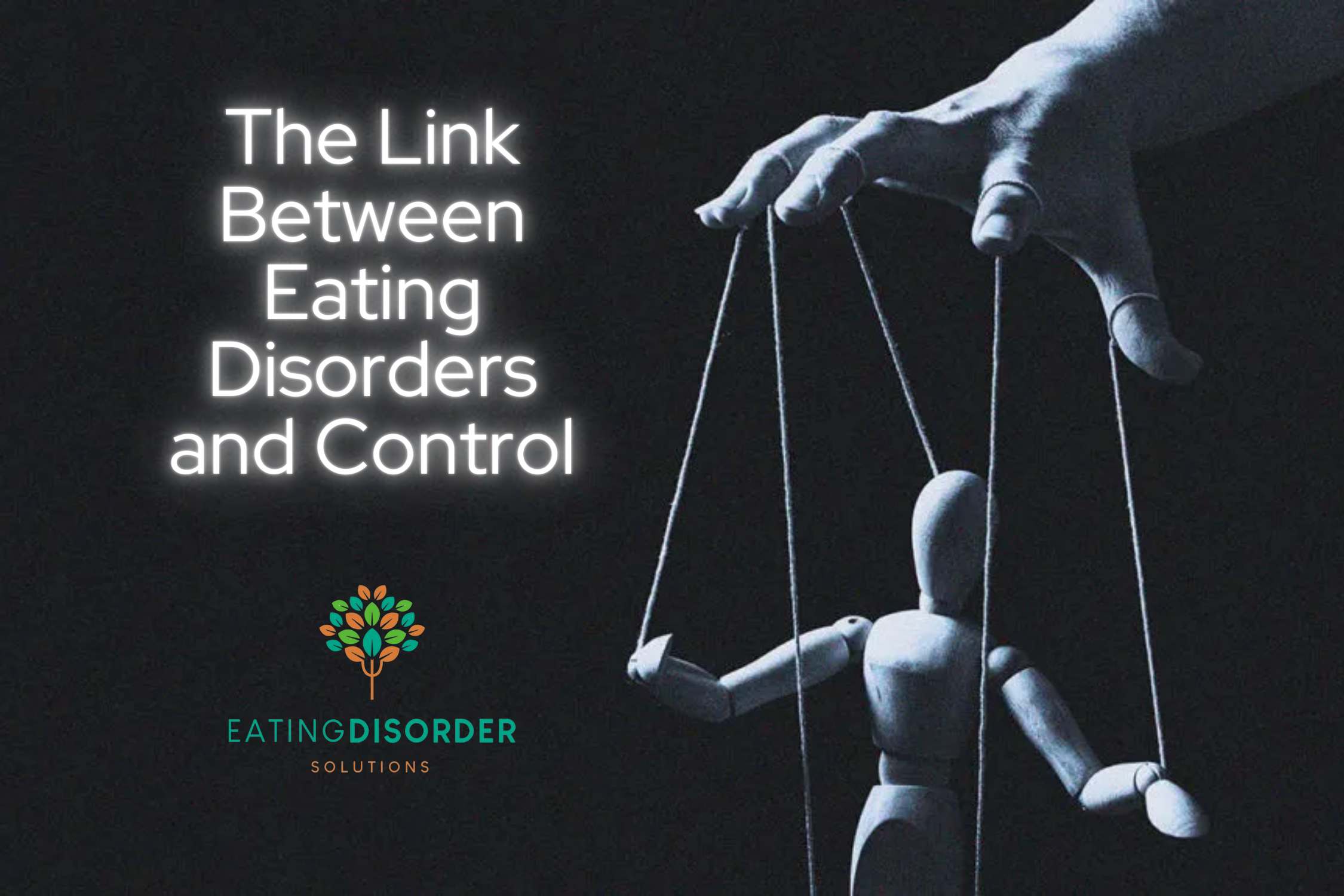Life can often be stressful. Whether it’s financial pressures, job uncertainties, or personal relationships, the chaos can feel overwhelming and out of control. In these moments, people often grasp at the one aspect they believe they can manage – their bodies.
The Intersection of Eating Disorders and Control
Turning to food restriction as a coping mechanism can provide a temporary sense of order amidst the chaos. It offers a temporary distraction from chaos and a false sense of control, alleviating stress and worry. However, when this behavior becomes extreme, it can trap you in a cycle of counting calories, restricting food intake, excessive exercise, and constant weight checks. Over time, these patterns can develop into an eating disorder. The good news is that recovery is possible, allowing individuals to regain control over their health and lives.
How Eating Disorder Manifests
Eating disorders are insidious, tricky diseases. They slowly unravel, persuading you to succumb to their demands, and sometimes, the demands are to eat less, binge, purge, or restrain from eating entirely. When an eating disorder takes over, it doesn’t just command your diet. It takes over your brain, behavioral patterns, emotions, and decisions. Even if you are hungry, your eating disorder voice manipulates you to change the idea of what “hungry” really means to you.
Psychologically, an eating disorder like anorexia can provide a sense of mastery over your body. The strict routines and rituals around eating can create a feeling of order, predictability, and security. Individuals might feel they are managing their lives effectively by altering their bodies despite the unhealthy consequences. Initial symptoms of anorexia, such as weight loss, fatigue, dehydration, and hair loss, can quickly escalate to more severe health issues.
The Illusion of Eating Disorder Control
Over time, the brain’s circuits that regulate appetite and food intake become disrupted. Due to the lack of necessary nutrition, your brain actually shrinks, becoming significantly weaker. This causes synapses to delay or misinterpret information from your hypothalamus – a small but important part of your brain that controls hunger. Consequently, the brain can reject specific cues like taste and hunger. It then clings to the new habits you’re introducing to it, distorting your view of healthy eating habits and your body image. Disruptive thoughts, such as a distorted view of your body and self, remain the most destructive symptom of eating disorders. You know you need food to survive, but your brain is now redirecting your sensible thoughts and morphing them into challenging ones that are hard to combat and manage. We often refer to eating disorders as having their own “voice” or “entity.” That’s because when you develop an eating disorder, your thoughts and actions don’t really feel like your own anymore.
The Paradox of Control in Eating Disorders
As the disorder progresses, it forces you to spend more and more time fixated on managing your most basic need: food. Ironically, what starts as a need for control over food intake can lead to the disorder completely controlling you and the way you live your life.
Accept the Reality
In reality, restricting and controlling the way you eat doesn’t actually help you with any of the situations in life that are bothering you. You aren’t going to change how someone treats you at work because you work on losing weight. You’re not going to bring someone back after they’ve passed away by setting down your fork before you’ve eaten.
Real freedom comes from realizing that you cannot control everything in life. There are simply things that will happen that you could not have predicted and that you cannot change after the fact. All of these issues are part of the human experience, but they are also out of your control. However, you can control how you respond to those events in a way that is positive for your mental and physical health. You can regain power over those events by adapting and finding alternate coping strategies.
Cognitive behavioral therapy (CBT) is a powerful tool for addressing issues related to eating disorders and control. By altering thought patterns and behaviors, CBT can help manage problems more effectively. This therapy is particularly beneficial for out of control eating, as it targets the brain’s thought processes, which are often at the root of eating disorders.
Can You Overcome an Eating Disorder?
Yes! While it is true that an eating disorder is a severe disease that can have lasting implications, you do have an opportunity to overcome it and move forward with your life. With the support of experienced therapists, dietitians, and health professionals, individuals can learn to overcome their fears and relinquish the obsessive need to control everything through food.
Once you learn healthier ways to cope and have the strategies you need to handle situations that make you uncomfortable in your life, you will find that you don’t need the eating disorder to resolve feelings of fear, worry, or anxiety. Over time, you will find that you don’t need to control every bite you eat because you’ve given yourself permission to let go, relax, and take challenges as they come. The journey of life may be unpredictable, but it can also be fulfilling. There is a profound beauty in accepting and surrendering to life’s uncontrollable aspects rather than being trapped in the storm of an eating disorder.
Seeking Help
If you’re dealing with anorexia or any other eating disorder and feel out of control, now is the time to seek the help you need. Eating Disorder Solutions is here to support you on your path to better health. Contact us today at 888-217-5233 to learn more about our anorexia treatment programs.



